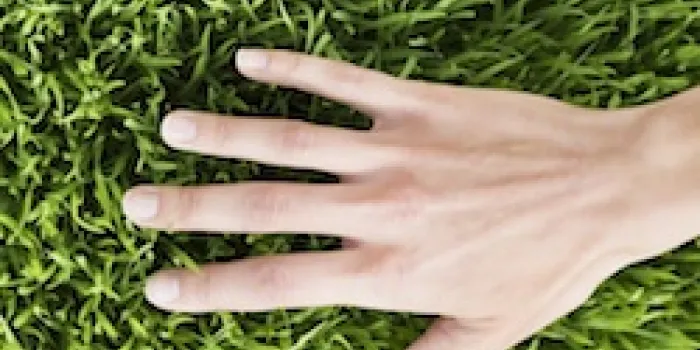Taylor Frank, 13, of Lake Forest, California, doesn't let severe hemophilia A stop him from pursuing his interests. The rising eighth grader is a fencer, has worked as an extra in movies and TV shows, and hopes to become president one day. And he loves to be outside.
Taylor bikes. He swims. He plays Wiffle® golf in the backyard. In winter, he enjoys riding an inner tube down snowy mountainsides. And on most days, he can be found walking his border terrier puppy on the path behind his house. "He will walk a mile on the trail and then turn around, not because he gets tired, but because the puppy does," says his mother, Sochi, 48, a consumer advocate with Coram Specialty Infusion Services. She has four other children ranging in age from 20 to 31. "Taylor is a nature boy," says Sochi.
Sochi and her husband, Jon, 46, a deputy U.S. Marshal, weren't always so open to letting Taylor play outside. "In his first four years, he was constantly in and out of the hospital, because he had an inhibitor," says Sochi. But after his inhibitor cleared, they realized that the benefits of being outdoors outweighed the risks. Says Sochi, "One thing we didn't want for Taylor is for him to live in a cocoon."
Sochi and Jon are not alone in their belief that outdoor time is good for those with bleeding disorders—and everyone else, too. The benefits go beyond the obvious fresh air, sunshine and exercise. Research shows that spending time outdoors can also lift your spirits.
The Outdoors and Your Bleeding Disorder
Heading outside often means boosting activity levels, which can combat obesity. Exposure to sunlight provides bone-enhancing vitamin D and can make you sleep better at night by helping to regulate your circadian rhythms, the internal “body clock” that maintains an approximate 24-hour cycle of biological processes. There's even evidence to suggest that spending time in nature can enhance your immune functioning.
There are additional benefits from being outside for people with bleeding disorders, says James Munn, RN, MS, program coordinator of the University of Michigan's Hemophilia and Coagulation Disorders Program in Ann Arbor. Staying in shape is recommended for people with bleeding disorders—a task that may seem easier while you’re outside enjoying a nice day. "When you limit yourself by being indoors too much, you're probably not getting the sort of physical activity your bones need to become healthy and strong," says Munn. He adds that strengthening muscles is also key to staying healthy with a bleeding disorder.
Being outside helps with proprioception—the sense of position, motion and spatial orientation. To help avoid injury, says Munn, people with bleeding disorders should try walking on surfaces that are sandy, rocky, hilly or grassy. "If you've never been exposed to any of that, the first time you go hiking with friends, you may either take it too cautiously or too aggressively, and end up with an injury," he says.
If you do get injured, research suggests nature can even help you heal. One classic study, published in Science in 1984, found that patients with a view of a natural setting outside a window were discharged from the hospital faster. Spending time outdoors provides unique benefits that can’t be gained indoors, says Edward J. Kuebler, LCSW, senior social worker at the Gulf States Hemophilia and Thrombosis Center in Houston. "You can get the effects you need with a gym," he says. "But when you can take the activity into the outdoor environment, part of why people enjoy it so much is because of the wind on their face and the sun shining."
Being outdoors also positively influences your mental health, studies show. In one analysis, published in Environmental Science and Technology in 2011, researchers found that exercising in natural environments rather than indoors was associated with increased energy and feelings of revitalization, as well as decreased tension, anger and depression.
Getting off the couch and out into nature can also provide a much-needed change in perspective, says Kuebler. "When people can't cope with what's happening, they can end up shutting down and getting depressed or anxious," he says. "When you're able to get them out and change that perspective, it can allow them to see what's going on outside their head."
Besides, exercising outside or simply having a picnic with your family can be a lot more fun than playing a video game by yourself or walking on a treadmill at the gym. "We live on a beautiful planet," says Kuebler. "We should take advantage of it."
Heading Out
Tommy W. Riggs Jr., 42, of Olean, New York, who has moderate hemophilia B, used to spend his days outdoors, building houses in Memphis, Tennessee. Then he injured his ankle, and the resulting bleed eventually ate away the cartilage around the joint, ending his construction career. Today he runs a computer repair business.
Now that he's no longer outside on the job, Riggs makes a point of getting outdoors regularly. He hops on his mountain bike or plants flowers in his yard. He also walks as much as he can on different surfaces to help improve his physical control and make it less likely that he'll twist a knee or sprain an ankle.
But Riggs says the effect on his mood is just as important as the effect on his body. "Being outside is a big stress reliever," he says. "It helps you forget about your problems."
Take advantage of the summer weather and head outside. It will help your body and your soul.
Learn More
- NHF’s Playing It Safe: Bleeding Disorders, Sports and Exercise (.pdf).
- Steps for Living: Physical Education, Sports Teams and Recess
- Contact HANDI, NHF’s information resource center: 800.42.HANDI or [email protected].

